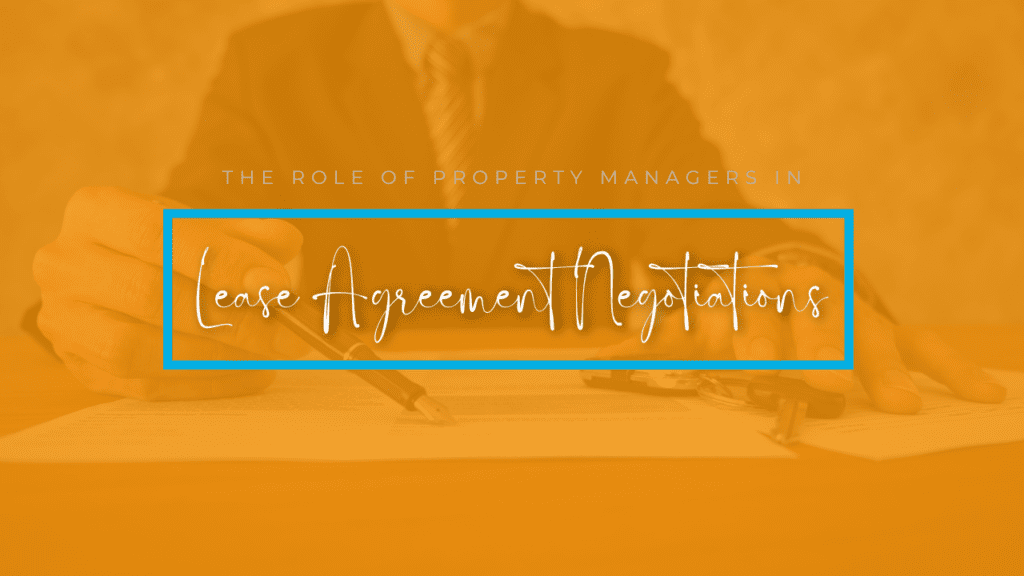
Why is it important to have a Tulare property manager negotiate the lease agreement that’s signed with your tenants?
A residential lease agreement can be long, detailed, and full of legal language, disclaimers, and disclosures that might not be immediately clear, even to an experienced real estate investor. The tenants who are signing this lease will need some help understanding the facts and requirements of the lease as well. Whether you own a single-family home, a collection of multi-family units, or even an entire apartment building, the lease agreement is the most important legal document that’s driving your rental experience. It’s where you and your tenants will turn if there’s a question or a conflict.
It needs to be well-understood and well-negotiated.
This is the role of your property manager; to ensure that you’re putting together a lease agreement that’s legally compliant in California and legally enforceable as well. The lease agreement is an important part of protecting your investment and your financial interests.
Tenants will come to your property and the rental relationship with certain expectations. Rental property owners will also have an idea of what you want to be responsible for and what you expect your tenants to do. The property manager you hire is the objective expert who knows what’s permitted and what isn’t. You need this experience when it comes to negotiating the lease terms that are best for you and your property. A strong residential lease is specific and detailed, and it doesn’t leave much to chance.
There’s likely to be a template that serves as a starting point for your lease, but almost everything is negotiable.
Don’t execute your lease agreement without having a Tulare property manager review it and make recommendations. The best thing you can do is leave it to your property manager to negotiate and sign the lease agreement with your tenants.
Here’s how property managers in Tulare negotiate your lease agreement.
Negotiating Rental Price
Your tenants know the rental price when they apply for your property. It likely seems that there’s little room for negotiation when it comes to price. But, you’ll sometimes have tenants who try.
It’s possible you’ll screen and approve a tenant, collect the security deposit, and then have your tenant start to haggle for a lower price before signing the lease. The role of your property manager is to be firm on what the monthly rental payment will be.
Unless you’re having trouble finding a well-qualified tenant to rent your property, there’s no reason to feel like you need to come down on the price that was listed and advertised. Your property manager will have a detailed understanding of the market and the competing properties and the local rental values. You will not have to worry about being talked into a lower rental price as you’re about to sign the lease.
The rent collection policy belongs in your lease, and while it’s not necessarily a point of negotiation, it’s your property manager’s job to explain to your tenants:
- How rent will be collected
- When it will be due
- What the consequences are for late rent
There’s no wiggle room on rent coming in on time. That’s a non-negotiable and it’s important that your tenants understand and respect this.
Establishing the Term of the Lease
When you think about a residential rental property lease agreement, it’s natural to imagine a 12-month lease period. Most agreements are for a year, with an option to renew at the end.
This is something that can be negotiated, however, and you should listen to the recommendations of your property manager if they propose a longer lease term such as 18 months or 24 months.
Shorter lease terms are also a possibility, but you’ll want to be sure your property manager insists on a higher rental rate for anything below the standard 12-month lease term.
What happens after the lease term is over? This may be another point of negotiation for your property manager to handle. Will your lease agreement switch to a month-to-month option or will your tenants need to commit to another full lease term? How much notice will they have to provide if they intend to move out?
You’ll also want your property manager to address potential lease breaks. What will your lease say about the tenant’s responsibilities if they cannot complete their full lease term? Your property manager will understand the legal responsibilities of both owner and tenant in the event of a lease break. This is something to be considered while negotiating the term of the lease agreement and the options available at renewal time.
Lawn Care and Pest Control Responsibilities
You’ll need your property manager to negotiate responsibilities around lawn care and pest control. The lease must indicate who is to be held accountable for these things. Typically, we recommend that the landlord keep landscaping in their wheelhouse, especially if you’re particular about how your lawn looks or you have an HOA who will be monitoring grass length and weed control. However, the lease may also state that the tenant is responsible for lawn and yard maintenance.
It’s negotiable, and will depend on your property and the level of interest and ability your tenants have in taking care of the lawn. Generally, it’s a better idea to hire a lawn service and then roll that cost into the amount of rent. Your property manager will hear your tenant’s thoughts on landscaping responsibilities and negotiate terms accordingly.
As we’re talking about which tasks we’ll want tenants to be responsible for, you may also want to decide who should be responsible for providing regular pest control and extermination. This is generally a landlord responsibility, but if you want tenants to be responsible for keeping bugs and pests out of the property, make sure your property manager is prepared to negotiate that.
When Your Tulare Tenant Wants to Paint
Most lease agreements will prohibit changes to the home.
However, you might have a tenant who wants to negotiate paint color or appliances. Are you willing to allow it? Your property manager can offer some advice and provide some lease language that allows for changes only after an approval is given and only if the tenant agrees to return the property to its original condition before moving out.
When you’re trying to attract highly qualified tenants with good rental histories, remaining flexible on lease terms like this is a good idea. Common cosmetic changes that tenants typically want to make to their rental homes include:
- Painting walls
- Installing window treatments
- Adding light fixtures
- Installing smart home tech or video doorbells
- Moving in their own washers and dryers
- Gardening
Accommodating a tenant’s requested updates is something your landlord can both negotiate and limit. This could be a great incentive for a lease renewal, for example, or for inspiring a 24-month lease instead of a 12-month lease.
Why You Need Your Tulare Property Manager for Lease Negotiations
Maybe it seems easy enough to negotiate these lease terms on your own. Why enlist the help of a Tulare property management company at all?
There are many advantages. Property managers have the experience to handle lease negotiations and they’ll know when they have a tenant who is trying too hard to get away with something versus a tenant who is willing to respect the lease and simply ask for one or two specific considerations.
Property managers also understand the legalities around lease agreements in California. This is one of the strictest states in the country when it comes to tenant protections and legal requirements. You don’t want to make an expensive legal mistake that could ultimately cause you to lose your tenant or, worse, end up in court.
One of the most important reasons to engage your property manager in lease negotiations is that you’re expecting us to develop and maintain a positive relationship with your tenants. A successful lease negotiation is the beginning of a strong and respectful relationship between the parties. Lease negotiations that are honest, transparent, and cooperative will set everyone up for a great rental experience. That good foundation will also lead to a conflict-free tenancy and a likely lease renewal.
Your property manager is able to listen to the needs and concerns of your tenants and exhibit empathy and appreciation.
You can expect your property manager to negotiate with confidence and creativity. As your representative during the lease negotiations, we’ll present the lease we expect your tenants to sign, and we’ll negotiate and explain in a clear and persuasive manner. It’s our job to highlight the benefits and value of what we offer in the lease.
If you’re looking for some Tulare property management help, we’d love to be a resource for you. Please don’t hesitate to contact us at River Drive properties with any questions.
 River Drive Properties provides effective and professional property management services in Merced and the surrounding areas including Fresno, Modesto, Tulare, and Turlock. We have extensive experience with both single-family homes and multifamily properties.
River Drive Properties provides effective and professional property management services in Merced and the surrounding areas including Fresno, Modesto, Tulare, and Turlock. We have extensive experience with both single-family homes and multifamily properties.

 Denise Turner
Denise Turner Joseph Cox
Joseph Cox Audrea Tuhn
Audrea Tuhn Michael Richter
Michael Richter Melissa Balderama
Melissa Balderama Xay Her
Xay Her Julio Anaya III
Julio Anaya III Clifford Uyeno
Clifford Uyeno Edith Zuniga
Edith Zuniga Itzel Ruelas
Itzel Ruelas Sandra Gaylord
Sandra Gaylord Crystal Taffoya
Crystal Taffoya

 Brandon Waters CMCA®, AMS®
Brandon Waters CMCA®, AMS® Diondra Williams
Diondra Williams Rachel Perez
Rachel Perez